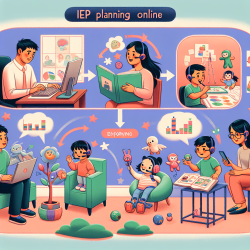Enhancing Online Therapy with Bioethics: Insights for Practitioners

In the evolving field of online therapy, especially in educational settings, integrating bioethics can significantly enhance practitioners' skills and improve outcomes. Drawing insights from the research article "Developing a bioethics curriculum for medical students from divergent geo-political regions," this blog explores how online therapists can incorporate bioethical principles into their practice.
Understanding Bioethics in Online Therapy
Bioethics involves the exploration and application of values and principles to guide ethical decision-making in healthcare. For online therapists working with diverse student populations, understanding and implementing bioethical principles is crucial. The study by Greenberg et al. (2016) underscores the importance of bioethics education, especially in culturally diverse settings.
Key Findings from the Research
The research conducted by Greenberg et al. (2016) highlighted several important aspects of bioethics education:
- Interactive Teaching Formats: Students and faculty preferred interactive formats such as case-based learning, role-playing, video examples, and small group discussions over traditional lecture-based formats.
- Truth-Telling: The most important topic identified was truth-telling, particularly in scenarios involving sensitive information disclosure to children and the elderly.
- Gender Issues: Ethical issues related to gender, such as contraceptive access and pregnancy decisions, were also highlighted as critical areas for discussion.
- Priority Setting: Resource allocation and priority setting were identified as challenging yet essential topics, given the diverse backgrounds of the students.
- Legal and Cultural Considerations: The interplay between legal norms and ethical considerations, as well as cultural and religious biases, were important factors influencing decision-making.
Implementing Bioethics in Online Therapy
Online therapists can enhance their practice by integrating these bioethical principles:
- Adopt Interactive Learning Methods: Use case studies, role-playing, and video examples to engage students and facilitate a deeper understanding of ethical issues.
- Focus on Truth-Telling: Develop strategies for truth-telling in a sensitive and culturally appropriate manner, considering the diverse backgrounds of the students.
- Address Gender Issues: Create a safe space for discussing gender-related ethical issues and ensure that students feel heard and respected.
- Prioritize Resource Allocation: Teach students how to make ethical decisions regarding resource allocation, taking into account the varying needs and priorities of different cultural groups.
- Understand Legal and Cultural Contexts: Be aware of the legal implications of ethical decisions and the cultural and religious factors that may influence students' perspectives.
Encouraging Further Research
The study by Greenberg et al. (2016) is a valuable resource for understanding the complexities of bioethics education in diverse settings. Online therapists are encouraged to delve deeper into this research and consider how its findings can be applied to their practice. Continuous professional development and engagement with current research are essential for staying informed and providing the best possible care to students.
Conclusion
Integrating bioethical principles into online therapy can greatly enhance the effectiveness of practitioners working with diverse student populations. By adopting interactive learning methods, focusing on key ethical issues, and understanding the legal and cultural contexts, online therapists can improve their practice and outcomes for their students.To read the original research paper, please follow this link:
Developing a bioethics curriculum for medical students from divergent geo-political regions.
Citation: Greenberg, R. A., Kim, C., Stolte, H., Hellmann, J., Shaul, R. Z., Valani, R., & Scolnik, D. (2016). Developing a bioethics curriculum for medical students from divergent geo-political regions. BMC Medical Education, 16, 193. https://doi.org/10.1186/s12909-016-0711-4










